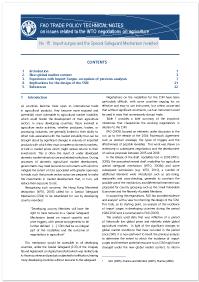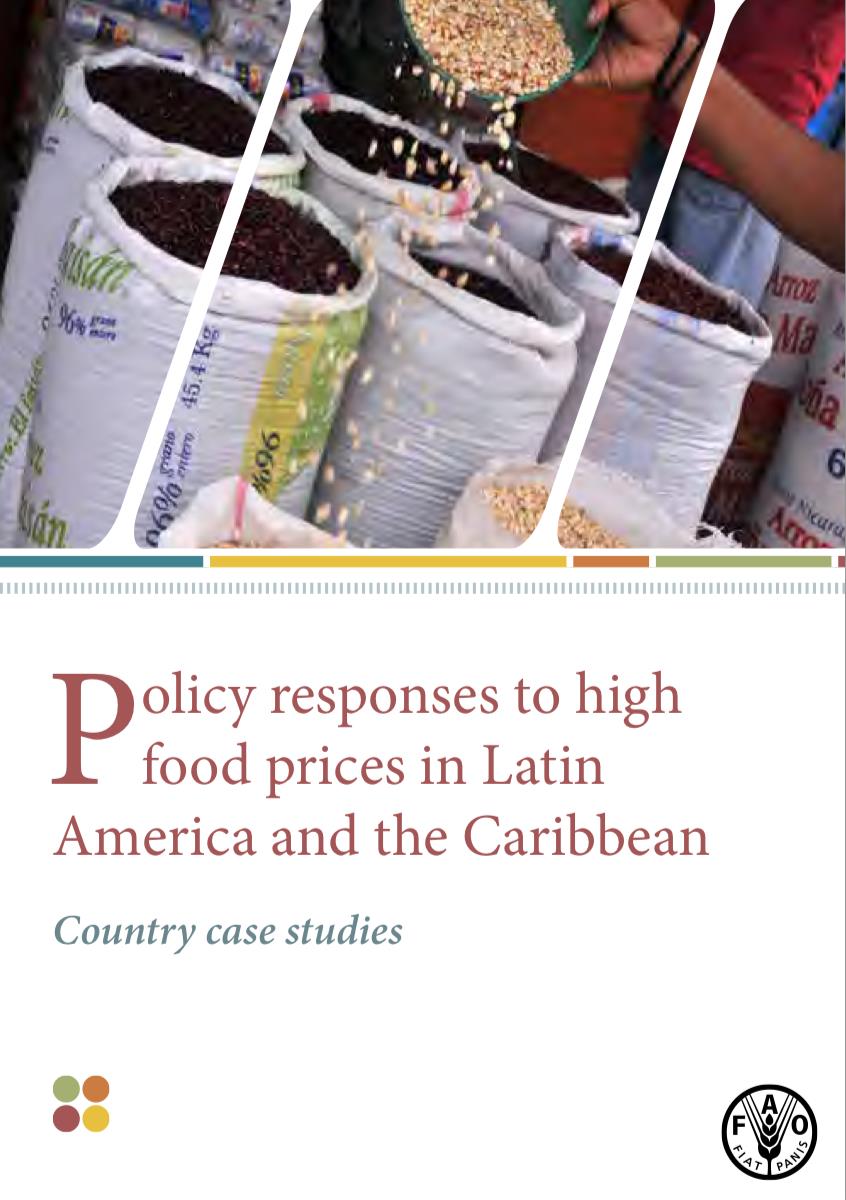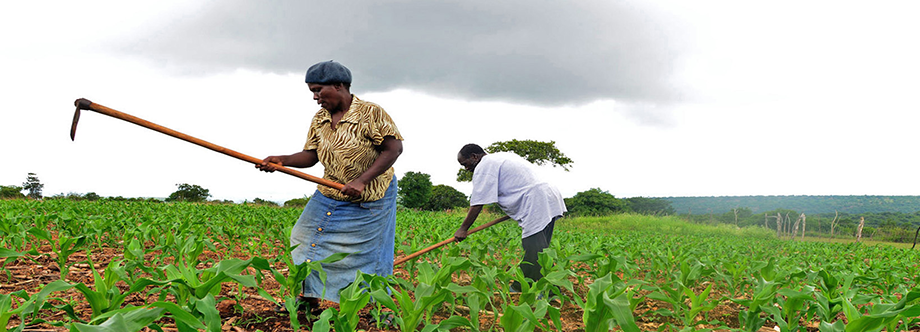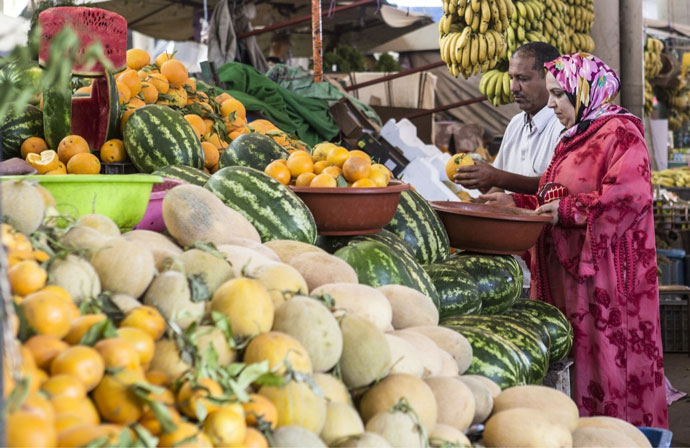Key messages
|
|
Multilateral trade rules, which take into account the specific needs of developing countries, are needed to ensure that the expansion of agricultural trade is conducive to the eradication of hunger, food insecurity and malnutrition. |
|
|
Trade policies must consider the different needs and roles of large-scale agricultural producers and smallholders and family farms. |
|
|
FAO emphasizes the need to strengthen coordinated and participatory policy-making processes and promotes more inclusive, transparent, and predictable rules for trade policy making and implementation. |
Publications

No. 15 Import surges and the Special Safeguard Mechanism revisited - September 2014
11/09/2014
This technical note revisits the analysis presented in Technical Note No. 9, updating data used in the identification of Import Surges to 2013 to capture recent changes in the global market context of higher and more volatile food prices and significant increases in volumes of imports to food deficit developing countries.

Policy Responses to High Food Prices in Latin America and the Caribbean
13/09/2014
This publication presents evidence with regard to the effectiveness of policies and programmes introduced in response to rising food prices in eight selected Latin American countries: Argentina, Bolivia, Brazil, the Dominican Republic, Ecuador, Mexico, Nicaragua and Peru. The case studies provide insights into the economic and policy environment at the time of the first price spike of 2007–08, analyse the measures that were introduced in response and discuss the evidence on the effects on the food security situation. As such they provide lessons learned in terms of the effectiveness of the different measures in achieving the intended food security goals, including the challenges encountered in their implementation. This evidence thereby contributes to the debate on appropriate policy responses to future price shocks, considering the complexity of determining short-term and long-term effects on producers, consumers and the fiscal accounts.





